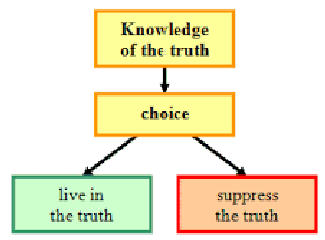 It wasn’t me!
It wasn’t me!
Chuck Berry, guitarist, singer and one of the pioneers of rock and roll music, recorded a song in the 60’s that has become the automatic response when Ron and I accuse each other of some “mishap in the house.” These lyrics have been modernized in a television commercial showing a child (hiding under the dining table) joyfully eating a cake obviously confiscated from the dessert buffet. The lyrics are these: “It wasn’t me, baby! No, it wasn’t me, baby! Must have been some other body, uh, uh, baby, it wasn’t me.”
This is often the response we hear when people are confronted with their sin. Listen to the news this week, this month, this year! Rather than take responsibility and quickly confessing, we begin to distance ourselves from the sin. Denial doesn’t remove the sin. Instead, it allows sin to strengthen in our life. Our willingness to accept responsibility for our sins is further complicated by living in a postmodern world where truth is relative. This further numbs us to the presence of sin in our lives.
Because of these factors, it is critical that we take personal responsibility for our sinful actions. This process begins with our being intentional in identifying sin in our lives (1 John 1:6-8, 10).
Living the Way of Jesus
This year as part of my spiritual development, I am reading Michaele Lavigne’s notable book, Living the Way of Jesus: Practicing the Christian Calendar One Week at a Time. The book is organized around the Christian calendar, using scriptural texts that follow the seasons of the Christian Calendar. While Jewish celebration revolves around the Exodus from Egypt, the Christian Church year focuses on the life and ministry of Jesus.
Lavigne includes weekly practices that invite readers to the rhythms of the Christian calendar and to orient us to God’s reality.
We do not merely ask God to join our lives: instead, we are invited to participate in God’s life. Subtly and explicitly, this way of making time reminds us that we [Believers] are part of a story that is different from the stories we hear all around us.[1]
This Season of Lent provides us an opportunity to walk with Jesus as He makes His way to the Cross and to gain a whole new understanding of what it means to be Christ’s disciple. This includes how we address sin in our lives—both subtle and obvious.
For Lent, Lavigne has suggested weekly practices that invite us to observe “who we really are and what the world is really like”. Practices to date have included Silence, Honoring Others’ Requests, and Recognizing our Sin. It is this last one that I share my personal reflections. Perhaps you will find it helpful in your journey to becoming more conformed to the image of Christ (Rom. 8:29).
Where do I start?
I was invited to begin with prayer and to consider what Jesus may need to “clean out of me”. Are there desires, activities, or decisions that are cluttering my life and preventing full worship of Jesus? I was to write them down and then take them to the One Person who could help me with my “sin problem”. I was to take them to Jesus.
Jesus alone could clear out and burn away the things that harmed me (John 2:13-22). Jesus would shine His light of truth on those things that kept me from being in right relationship with God and with others. I was to listen to anything Jesus might share with me during our time together. That was the most illuminating part of this practice. Once I confessed my sins, Jesus faithfully forgave me and cleansed me from my sins (1 John 1:9).
At the end of the week, I was to process what I learned from this practice of recognizing my sin.
What did I learn about myself? About God?
I learned that there were things that cluttered my life and prevented me from spending quality time with the Lord. I had allowed busyness to dominate my time. My schedule was interfering with my time with my First Love (Rev. 2:4).
For me, even ministry work (externally focused) sometimes takes time away from prayer, reading God’s Word, meditation, journaling, and more. Dedicated time with Jesus provides “sacred space” where He can direct, reproof, instruct, nurture, and correct me. It is time when I can “d-r-i-n-k” from the fountain of life (Ps. 36:9). And as I drink, I am being transformed (Rom. 12:2).
What did I Learned about God? He never changes! Hallelujah! God is loving and patient. Even in my foolishness and sin, He never gives up on me. “The Lord will wait that He may be gracious unto me.” (Is. 30:18)
Recognizing My Sin: The Conclusion
I close with this quote from F.B. Meyers concerning sin. “We often expose ourselves to more anguish in our effort to retain and to restrain [our sins], than to remove them absolutely and forever.” Where are you spending your efforts?
It is our responsibility to keep sin at bay in our lives. While we live in this flesh, we must deal with the presence of sin. However, we have been delivered from its power in our lives (Rom. 6:6-14). The intentional practice of recognizing sin can draw us nearer to Jesus and becoming the people our Heavenly Father created us to be.
[1] Living the Way of Jesus: Practicing the Christian Calendar One Week at a Time









